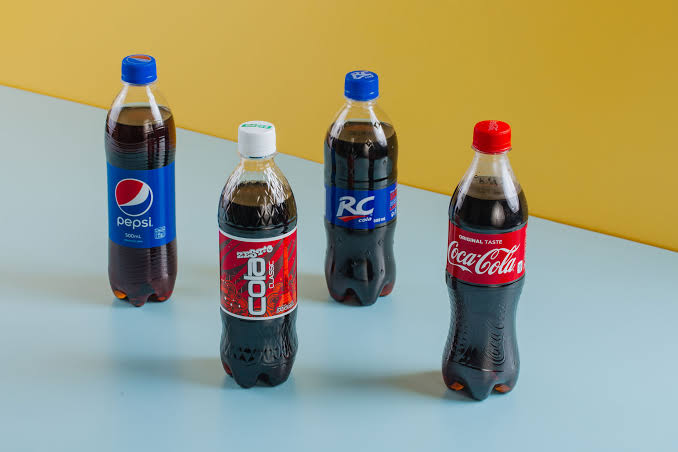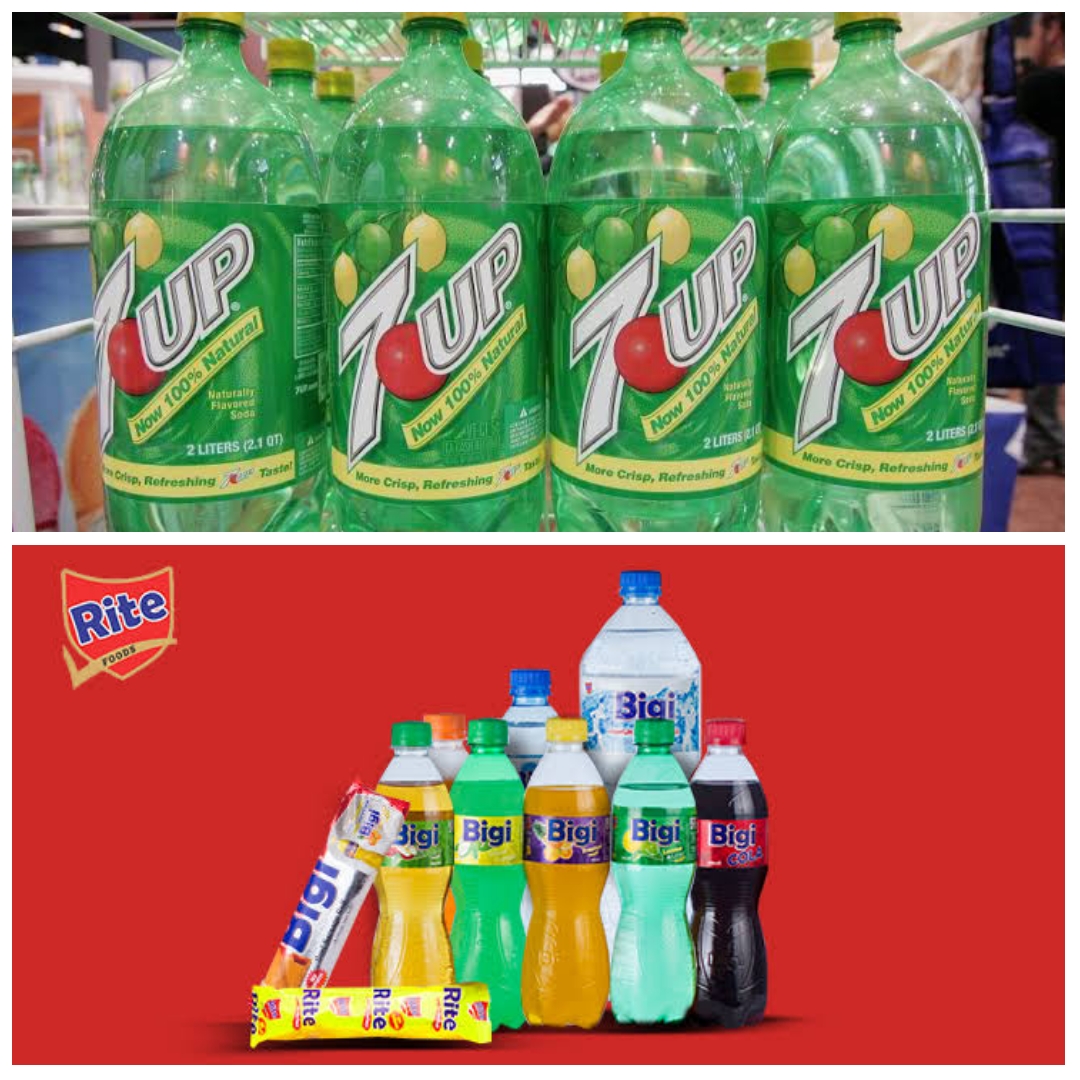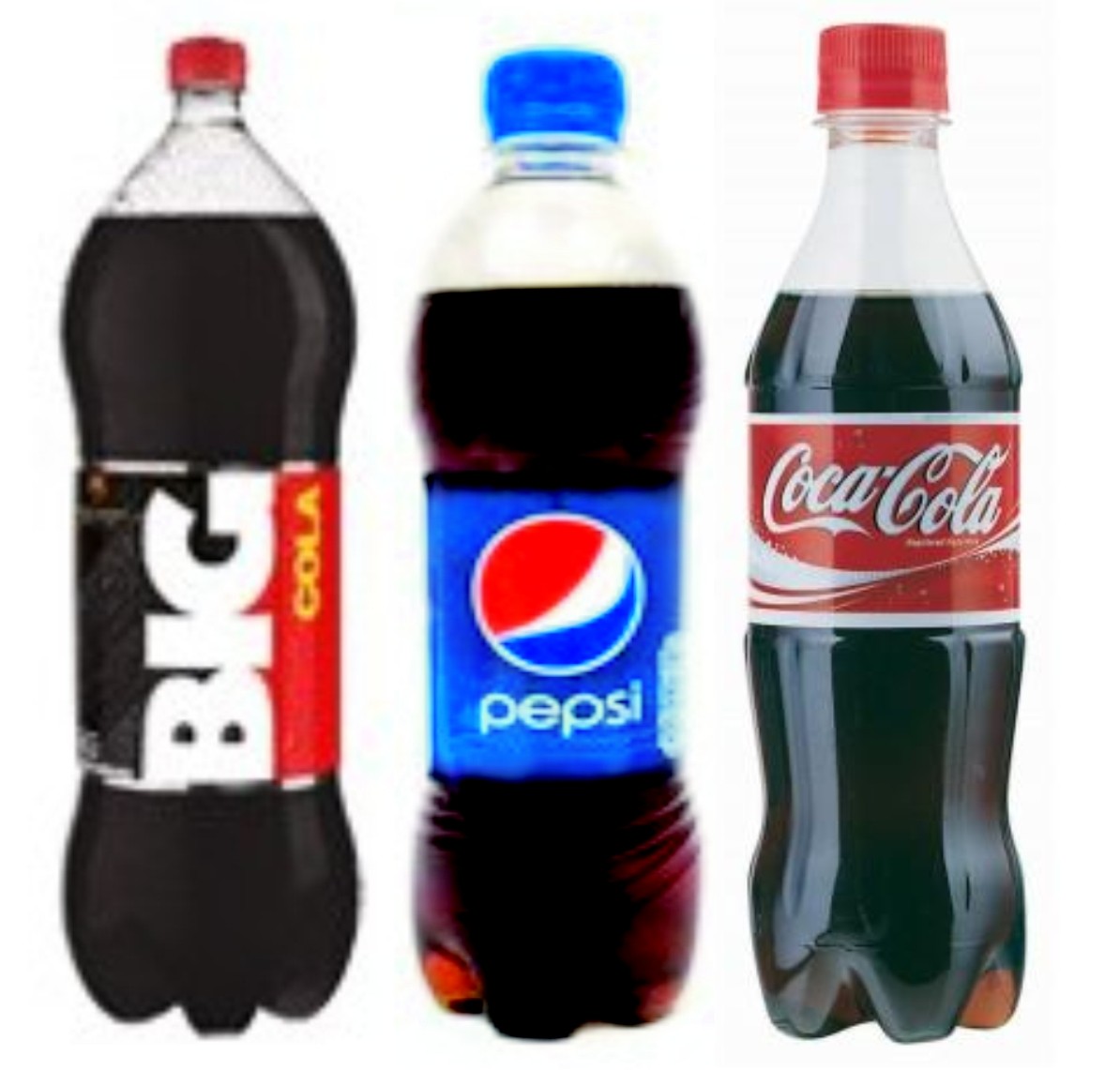Brands
Cola war 4: RC Cola challenges Coke, 7Up in South East

By OBINNA EZUGWU
A few months ago, it would have been hard to anticipate that Coca-Cola Company and 7Up Bottling Company, whose carbonated drink brands: Coke, Fanta, Sprite and Pepsi, 7Up, respectively, dominated the South East market, even years after the South West had given in to the dominance of such newer brands as Rite Foods Limited’s Bigi Cola and Ajeast Nigeria’s Big Cola, would suddenly find themselves struggling, beating down by the new entrant into the catchment market, U.S. owned Royal Crown Cola International’s RC Cola brand.
The impact of Big Cola and Bigi Cola on Coca-Cola and 7Up should have served as a big lesson. In a fast changing business environment, characterised by intense competition, it takes eternal vigilance and a measure of flexibility to keep top spot.
RELATED: BIGI COLA EXPANDS COLA WAR
Apparently, however, it would appear that Coca-Cola and Pepsi had not done much of due diligence in this respect, or as was the case in the South West, lacked the capacity to withstand the sweeping impact of newer cola brands, which with less encumbrances, are able to offer more value for lesser amounts.
“One of the things is that for those bigger companies, their structures and their cost are heavy. The new companies don’t have those heavy plants, big staff here and there. Their cost is lower so they are more profitable,” noted Mr. Onos Molokwu, Country Head, Bates Cosse Communication and Marketing Agency.
The emergence of Big Cola in 2015, and Bigi Cola a year later had signaled the end of Coca-Cola and 7Up dominance in Lagos and other states of the South west. This development may have forced the two companies to exit the Nigeria Stock Exchange to escape public scrutiny and shareholders censure.
Read Also: COLA WAR INTENSIFIES AS COCA-COLA, PEPSI SLASH PRICES
However, 7Up has managed to maintain strong presence with its 50cl plastic bottle brand, which from BusinessHallmark survey, remains second in the perking order after Bigi Cola in the low and middle end market.
But while the Western Cola War raged, the East remained more or less Coca-Cola and 7Up territory. Neither Ajeast nor Rite Foods gave much thought about pushing Eastwards, and the big brands must have felt comfortable doing business as usual in the region.
However, that has changed rather suddenly with the “invasive” entrant of RC Cola which has suddenly become about the most selling brand in such places as Enugu, Nsukka, Awka, Onitsha and elsewhere.
“RC Cola has become the brand mostly in demand here,” said Ken Nnaji, a resident of Enugu. “Most people prefer it these days. But I think Coca-Cola is also recovering because they have reduced price.”
RC brands now litter the streets, constituting the lion share of stocks displayed by roadside vendors and hawkers.
“The makers of RC Cola are pushing it aggressively. They are supplying massively here in Nsukka, daily,” said KC Ezeaku, a retailer in the university town.
“It is moving fast, but I can’t say for certain that it has displaced Coca-Cola because no matter what, Coke remains the ever present brand.”
Cola War: BIGI COLA DOMINATES SOUTH WEST SOFT DRINKS MARKET
Interestingly, however, RC has had contrasting fortune in the South West.
The brand which came into the region earlier in the year, with its 50cl bottle, found itself struggling to break into a market already dominated by Bigi and Big Cola offering 60cl bottle for same N100 price, and Pepsi which has continued to keep second spot in the plastic bottles category after Bigi Cola as shown by BusinessHallmark survey. A number of vendors interviewed at Opic, Isheri North in Ogun State last week said they no longer buy the RC brand because it doesn’t move.
“I don’t buy RC Cola again,” said Salihu, a vendor at Fatgbems Bus Stop, Isheri. “The last one I bought stayed with me for months. I couldn’t sell them.”
Cola War: FIRMS FIGHT OVER CHAPMAN MARKET
In the East however, its aggressive marketing strategy has achieved results. It has had almost similar impact as Big Cola and Bigi Cola in the West.
“I think people are attracted to it because it’s new,” Ezeaku said. “We buy a crate of 12 for N950 and sell N100 for each. It’s the same price with Pepsi. Big Coke is N1350 and small Coke is N900, and sold for N100 each.”
An emerging price war
The RC Cola emergence has inevitable triggered price war as Coca-Cola and Pepsi try to fight off the new “invader” of their turf. Coca-Cola has reduced the price of its 50cl plastic bottle from N150 to N120, 50cl glass bottle from N100 to N80, and 35cl glass bottle from N80 to N50.
“Because of the reduction in prices, people are buying Coke more than they used to,” Nnaji said. “RC has forced them to reduce prices.”
Not ready to be out-competed still, 7Up has also reduced the price of its 50cl glass bottle from N80 to N70. However, most sellers are yet to adopt the new price adjustments and the new brands are still enjoying their price edge.
“If you look at it, what would have given a Bigi Cola or RC Cola an edge in this market. It is simply a function of naira and kobo,” Molokwu said.
“If you know that with N90, you can buy these things in any of these malls. And in the open market, it is also within that same range. So when the economy is tight, people go for what is more affordable. They know Coca-Cola is a good brand, but then, they are looking at their pockets.
“And for a trader, if you buy something for N90 and sell it for N100; if it’s a pack of 12, that means N120. If you sell five in a day, that’s N600. So you see why those brands have continued to succeed.”
The big players have been forced to adjust, according to Molokwu. “Those other guys are now being forced to adjust. 7Up has collapsed its operational system,” he explained. “Unlike when they had marketing managers, branch managers and all that. They have collapsed everything. They don’t even have a single truck again. They have outsourced that. Everybody is looking at how to keep their own operations neat and tidy.”
Growing competition
RC Cola, following the steps of Bigi Cola and Bigi, has become the latest carbonated drink brand to make impact in the Nigerian market. But with new products still emerging, it most likely won’t be the last. Competition has continued to intensify.
“New products are still going to come into the market. The point is that everybody is looking at Nigeria. It’s unfortunate that Nigerians don’t invest in their country,” Molokwu noted.
“The Europeans cannot see 200 million people and say that they have not seen a market. The 200 million people must eat something, so just provide what it is that those 200 million people can afford and you are a billionaire.
“They will continue to come to the country, the competition is going to get stiffer. Those bigger companies will have to re-engineer themselves to be able to compete with all these small brands that are giving them headaches.”
Indeed, the RC phenomenon is only an extension of what has been an intense cola war, particularly in Lagos and the adjoining states of the South West; a war that had seen Bigi emerge as the dominant brand in the region, forcing old time favourite, Coca-Cola to largely abandon the mass market segment in the area to the newer competitors to focus instead on premium upscale diet varieties.
Mojisola Olaniyi, a distributor of carbonated drinks at Abule Egba, a Lagos suburbs, had told this newspaper that; From what we learnt bottled coke is not making any headway as consumers prefer plastic one, and in the face of keen competition, a competition that has been innovative and aggressive in recent year, CocaCola came up with Diet coke , and small plastic one , the 35CL sold at N50 as part of the solution to the challenging competition.
In Nigeria, where poverty rate is high, most low income earners prefer quantity to quality, thus the explanation for the success of recent fringe player competitors as Bigi.
Few months ago, the Lacasera Company, in what is an attempt at revival, launched its Smoov Chapman brand, the Lacasera beverage having lost grounds to the emergent market leaders. The move has since triggered another kind of cola war: the Chapman war.
Following the introduction of Smoov Chapman, initially on 50cl plastic bottle, by Lacasera Company and its consequent acceptance by consumers, Rite Foods also introduced its own 60cl Bigi Chapman to fight it off. Sensing the Bigi threat, however, Lacasera, subsequently introduced a bigger version of Smoov, the 60cl bottle to match Bigis. It’s a strategy that seems to have worked as Smoov remains the dominant Chapman brand.
READ ALSO: Coca-Cola Abandons Mass Market to Competitors








